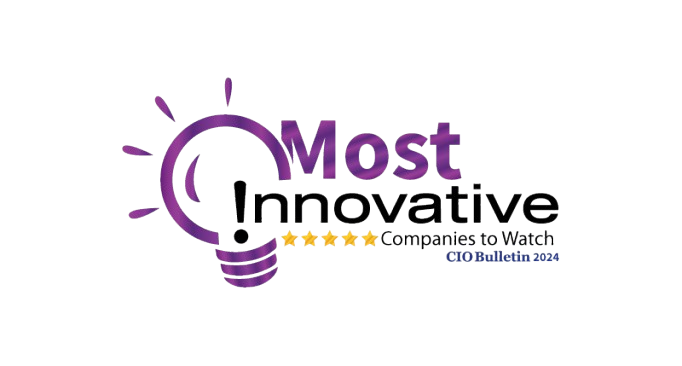Keep Up With The Competition With Email Deliverability Audit
August 16, 2022
Email has been one of the few marketing channels that have stood the test of time. While traditional marketing channels are losing relevance and new-age marketing is on the rise, email marketing has remained more or less untouched. For several years, this marketing channel has helped businesses reach out to prospects and cater to existing customers.
Email marketing is an art that helps you spread the word about your business and persuade your target audience to engage with it. Right from sending newsletters to keeping your customers updated about the latest offers, it prevents your audiences from forgetting about your brand. This, essentially, is one of the key purposes of marketing.
However, simply executing an email marketing campaign is never enough to obtain the best results. It is important to keep track of how well your emails have been doing and what the status of their deliverability is. It is the deliverability of your emails that decides the success or failure of your email marketing campaign.
This is why it is important to conduct an email deliverability audit to stay ahead of the curve and keep up with the competition.
What Is Email Deliverability Audit?
Email deliverability audit is the process of analyzing if your emails are being delivered successfully and landing in the inboxes of the recipients. The performance of your email marketing campaigns depends on the deliverability of your emails. It is the most basic yet important aspect to consider while assessing your campaigns. If your emails are not reaching your audience effectively, it would shake the foundation of your email marketing campaign.
The purpose of an email deliverability audit is to assess all the elements that affect the deliverability of your emails. It also provides you with the potential reasons for poor deliverability and helps you explore suitable ways of improving the same.
As a business, you would want the maximum number of prospects and customers to receive your emails on time and acknowledge them once received. Email deliverability audit gets into the nitty-gritty details of your emails being delivered to enhance your campaigns.
Here are some important factors considered while conducting an email deliverability audit:
- Failure in email authentication
- Issues with email infrastructure
- The reputation of the sender
- Going to an email blocklist
- Insufficient efforts to acquire contacts/leads
- Spam signals in emails
Elements Of A Comprehensive Email Deliverability Audit
If you are getting your email deliverability assessed, make sure you take every small and major aspect into consideration to improve your email marketing campaigns.
Here are the most important elements involved in conducting a comprehensive email deliverability audit:
Evaluating The Email Service Provider
Start with the most basic element that plays a role in getting your emails delivered – your email service provider. For this, make sure that your emails are landing in the recipient's inboxes. Try sending an email to yourself and see if there is any issue there. If you are facing difficulties at this stage, it is very likely that there is an issue with your email service provider.
Checking If Your Email Is Blacklisted
If your email has gotten blacklisted, it is bound to affect its deliverability. For this, you will need to check the reputation of your email domain. If your email is blacklisted, will be associated with email spamming and may result in high penalties. There are dedicated tools that help you check if your emails have been blacklisted. Ultimately, it would hamper your email deliverability and your email marketing campaign.
Checking Sender Reputation
Just like the reputation of your brand, it is important to build a strong email sending reputation to maintain good email deliverability. If your reputation as an email sender is poor, your emails are likely to be counted as spam and your recipients may not end up clicking them open.
For building a good email sender reputation, make sure that you send the right emails to the right people with relevant content. Stick to your marketing campaign and send emails only to your target audience.
Setting Up SPF Authentication
Sender Policy Framework (SPF) is an important element when it comes to conducting a comprehensive email deliverability audit. It helps you validate the IP address of the sender and prevents your emails from being driven to the spam folder. Having adequate SPF records allows you to protect your domain by letting the receiving server know that the emails are coming from an approved sender.
Configuring DKIM
DKIM stands for DomainKeys Identified Mail. It is a popular email authentication standard used for confirming the fact that your email was sent by you and no one else. DKIM does so by encrypting a signature to the email header, preventing it from being hampered. Based on your DKIM records, the recipient server verifies your emails. If the values match, your email is delivered successfully. Configuring DKIM helps you ensure that your emails go through as a verified sender.
Implementing A DMARC Policy
DMARC stands for Domain-based Message Authentication, Reporting, and Conformance. It is a policy that provides an additional layer of protection to your email domain for preventing any unauthorized usage. As a sender, it allows you to inform the receiving server how to verify your email and what to do if the verification fails.
Checking Your Email Automation Setup
In the age of digitization, businesses often resort to email automation for sending emails to their prospects and customers. While conducting an email deliverability audit, it is important to check your email automation setup as well. Check for new updates, unwanted bugs, and the tools used while making assessments to ensure that the concerned software is sending the right emails to the right people.
Checking The Volume Of Cold Emails
No one likes receiving a plethora of cold emails on a frequent basis, even if they are your loyal customers. While conducting an email deliverability audit, check the volume of cold emails sent by your marketing and sales reps to your prospects and customers.
Sending a lot of cold emails may result in your email getting blacklisted or your emails going straight to the spam folder. This is bound to hamper your email deliverability. Always make sure that you spread your emails over a few days and give the recipients enough time to respond before sending follow-up emails.
Verifying The Recipients
Finally, it is important to verify the contacts to whom you are sending your emails. Your email deliverability is bound to get affected if you are sending emails to incorrect email addresses. Check your CRM database and match your contacts with your email records. Look for spelling mistakes, incorrect email addresses, and other careless mistakes that may affect your email deliverability.
This aspect is common in conducting a CRM audit and an email deliverability audit. Make sure your CRM data is clean and organized to ensure smooth and effective processes.
The Final Word
To stand out from the clutter and keep up with the competition, it is important to conduct a comprehensive email deliverability audit. It is advisable to make such an assessment at least once a year to ensure that your email marketing processes are up to date and to leverage your email marketing campaigns.
Featured Resources
Check Our Latest Resources

Proven ROI has been recognized as one of the Most Innovative Companies to Watch 2024 by CIO Bulletin—a testament to the company’s forward-thinking approach to CRM investments and strategic partnerships. By working closely with leading CRM platforms like HubSpot, Proven ROI is revolutionizing how businesses manage customer relationships, scale their operations, and drive growth.



